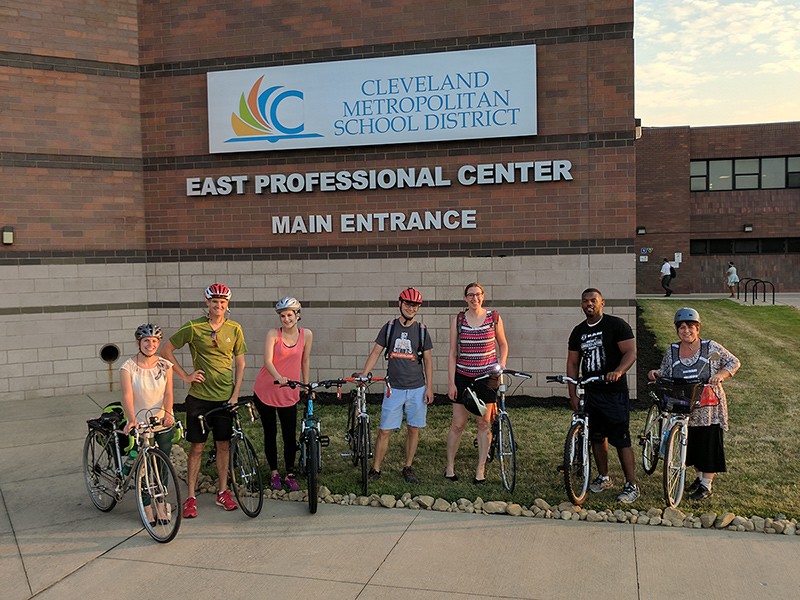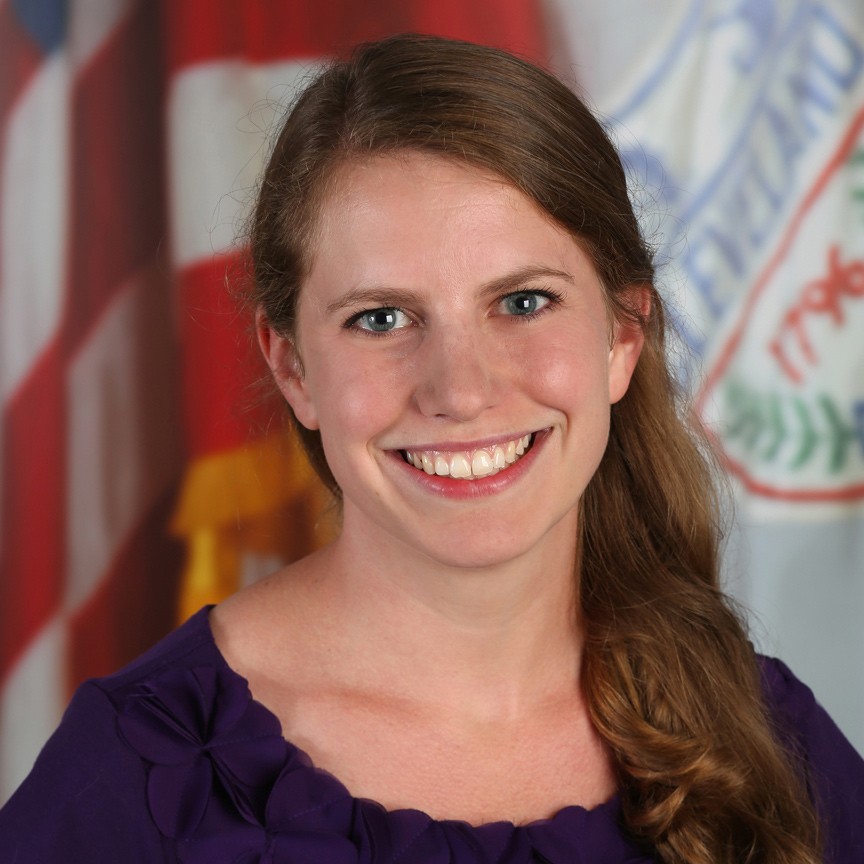As the Bicycle and Pedestrian Coordinator for the city of Cleveland, Ohio, Calley Mersmann covers a lot of territory. Her responsibilities range from overseeing the city’s scooter and e-bike permit programs to working with neighborhood residents, planners and engineers on roadway and corridor designs. Currently, she and her colleagues are in the middle of building a “Vision Zero” initiative that that aims to ensure no one is killed or seriously injured on the road.
“I have a lot of meetings, phone calls, some of them are out on site,” she said. “It’s more desk-based now since the Coronavirus pandemic, but sometimes I get to go ride my bike around town for work, which is fun.”
Mersmann’s route to her current position began during her undergraduate days in ecology.
“I started out working in the soil ecology lab my first and second years and I enjoyed that, but felt very disconnected from community and from interacting with people,” she said. “So that is how I got more onto the sustainability track.”
Mersmann became involved in the Ecology Club, helping organize the Game Day Recycling program and the successful initiative to instate the student “green fee” that created and funds the Office of Sustainability.
“I knew that I wanted to help people live in a more environmentally friendly and sustainable way and ended up following the policy path for that,” she said.
After graduating, Mersmann spent the next two years at Indiana University Bloomington, receiving her master’s degree in Public Affairs in 2013. A position as the Safe Routes to School coordinator for the Cleveland Metropolitan School District eventually led to her current job.

Although she used a bicycle for personal transportation while a student, Mersmann’s interest in transportation grew out of learning about the ecological impacts of climate change.
“I think it came from…looking around and realizing that people don’t have options or opportunity to live in a way that helps rise to the challenge; our systems aren’t set up to help us limit emissions, and that comes out in our food systems and our water systems and our housing systems,” she said. “But transportation is in an area that I felt passionate about because there’s a lot of innovation in that area right now.”
Mersmann said her experiences at the Odum School prepared her well for her career.
“My time in Odum was very well rounded and it prepared me to do the academic work as well as the community engagement, presentations, and talking with diverse people,” she said. “I like where I am now because it’s similar to ecology, where you understand the whole system and how certain dynamics of one part of the system can affect other parts.”
Mersmann credited two important mentors at Odum, undergraduate advisor Misha Boyd and then-undergraduate coordinator Jim Richardson, for influencing her path.
“Misha’s such a helpful sounding board and a really good connector,” she said. “My interests were a little bit atypical for an ecology student…and she never forced students to try and fit into some sort of mold or box.”
She also appreciated Richardson’s warm spirit. “He made students feel so welcome and comfortable there,” she said. “I think Odum is such a special place in the university. UGA can feel so big, but Odum is like a real family and a foundation for students.”
Mersmann’s advice is to explore broadly and find out what resonates.
“Be certain about the change that you want to make or the difference that you want to make and then use that to prioritize how you spend your time and energy and the opportunities you take,” she said.

